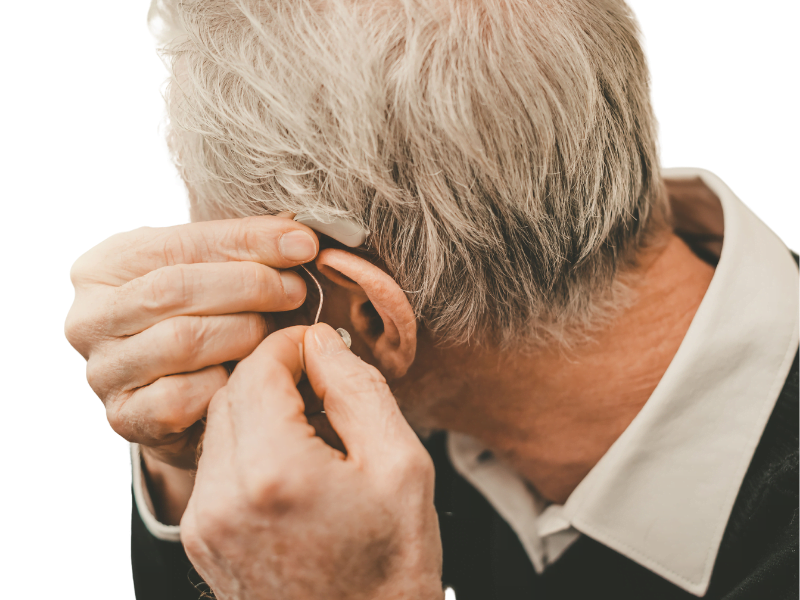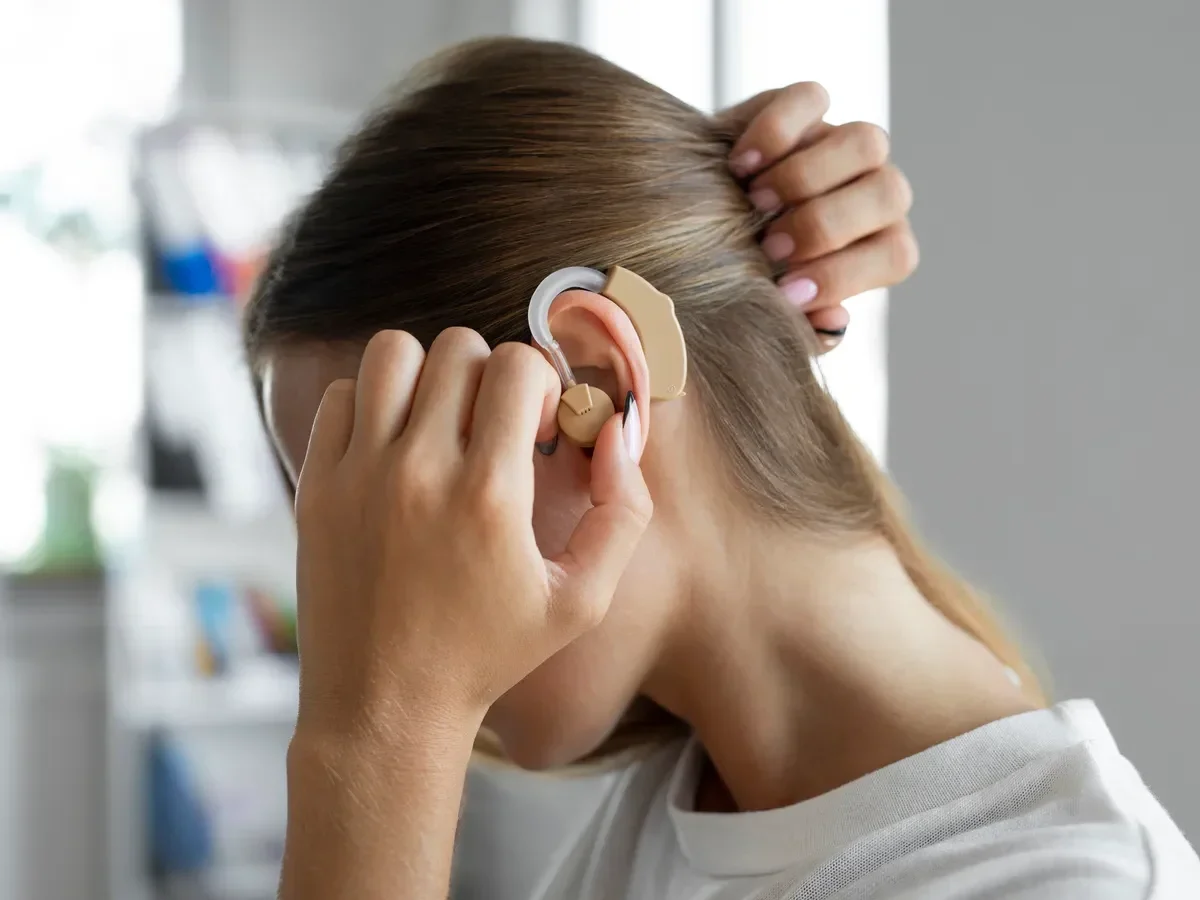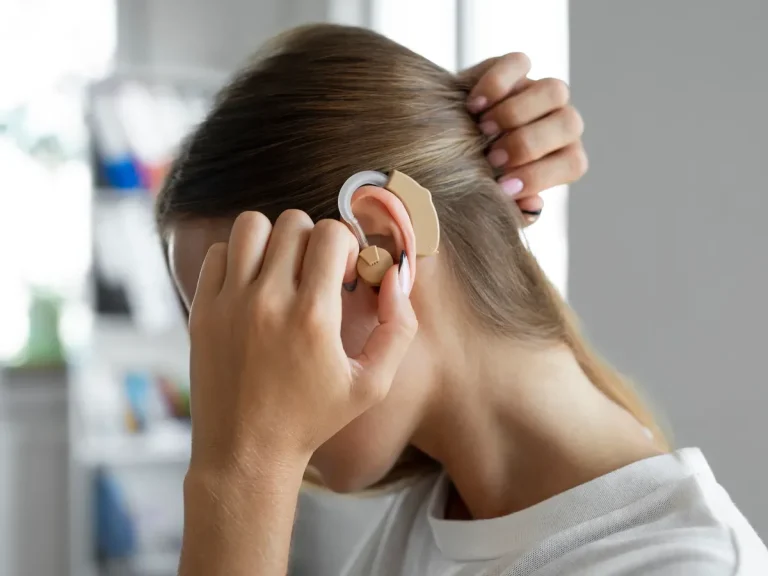LIVING WITH HEARING LOSS
LIVING WITH HEARING LOSS

LIVING WITH HEARING LOSS
Hearing loss is a widespread condition impacting 12 million adults in the UK and 1.5 billion people globally. Discover how to identify the signs, explore treatment options, and find ways to support those living with hearing loss.

Identify the signs of hearing loss
- Difficulty following conversations or frequently asking people to repeat themselves
- Turning up the volume on devices like the TV or phone
- Feeling fatigued from straining to hear throughout the day

Identify the signs of hearing loss
- Difficulty following conversations or frequently asking people to repeat themselves
- Turning up the volume on devices like the TV or phone
- Feeling fatigued from straining to hear throughout the day
How to manage the signs of hearing loss
- Whether you have hearing loss
- The severity of your hearing loss
- The available treatment options for you
You can also begin by taking our online hearing test, which takes about five minutes and provides an indication of whether you’re experiencing signs of hearing loss.


How to manage the signs of hearing loss
- Whether you have hearing loss
- The severity of your hearing loss
- The available treatment options for you
You can also begin by taking our online hearing test, which takes about five minutes and provides an indication of whether you’re experiencing signs of hearing loss.

Ways to support someone with hearing loss
To support the conversation:
- Be prepared and choose a comfortable setting
- Show empathy and offer support
- Encourage them to take the first step towards treatment

Ways to support someone with hearing loss
- Be prepared and choose a comfortable setting
- Show empathy and offer support
- Encourage them to take the first step towards treatment
What can you do to help
- Read tips on supporting a loved one with hearing loss
- Encourage them to take a quick online hearing test
- Help them book a clinic appointment for a thorough assessment of their hearing loss


What can you do to help
- Read tips on supporting a loved one with hearing loss
- Encourage them to take a quick online hearing test
- Help them book a clinic appointment for a thorough assessment of their hearing loss

The hidden risks of untreated hearing loss:
Hearing loss can lead to various emotional and social issues, including:
- Loneliness and reduced social interaction
- Memory decline and difficulty learning new tasks
- Decreased performance at work or school
- Fatigue, stress, and depression
- Increased safety risks and cognitive decline

The hidden risks of untreated hearing loss:
Hearing loss can lead to various emotional and social issues, including:
- Loneliness and reduced social interaction
- Memory decline and difficulty learning new tasks
- Decreased performance at work or school
- Fatigue, stress, and depression
- Increased safety risks and cognitive decline
Did you know?
FAQS ABOUT LIVING WITH HEARING LOSS
Common signs include difficulty understanding conversations, especially in noisy environments, frequently asking others to repeat themselves, turning up the volume on devices, and feeling isolated from social interactions. If you experience any of these symptoms, it’s advisable to consult a healthcare professional.
Hearing loss is typically diagnosed through a hearing test conducted by an audiologist or an ENT specialist. This test assesses your ability to hear sounds at various frequencies and volumes to determine the extent of hearing loss.
Treatment options vary depending on the type and severity of hearing loss. They may include hearing aids, cochlear implants, assistive listening devices, or, in some cases, surgery. Early intervention and technology can help manage and improve hearing abilities.
Support can include learning about their specific hearing needs, speaking clearly and at a moderate pace, reducing background noise, and using visual cues. Being patient and understanding can also help create a more inclusive and supportive environment.
Yes, strategies include using hearing aids or assistive devices, ensuring regular hearing check-ups, seeking support from hearing loss organizations, and using communication strategies such as lip-reading or sign language. Additionally, modifying your environment to minimize noise and improve sound clarity can be beneficial.





